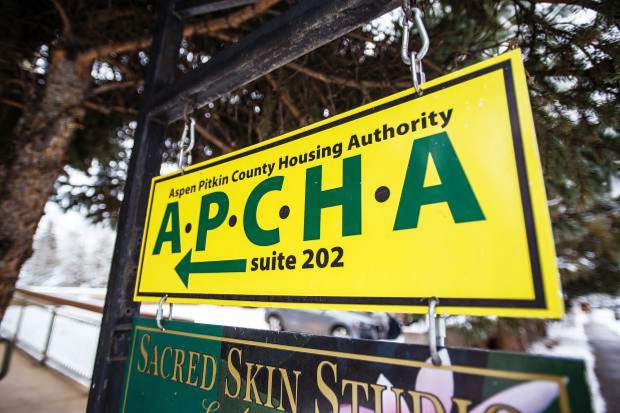Local woman fined $5,000 for renting room in Woody Creek affordable housing unit

A local woman who was found to be renting a bedroom in her deed-restricted house in Woody Creek has been fined $5,000 for the repeated offense, the Aspen Pitkin County Housing Authority compliance office ruled recently.
Diane Kessler was facing up to $10,000 in fines for renting out a room for hundreds nights since 2014 and breaking two rules that each carried $5,000 fines. If she rents out the unit again, the suspended $5,000 of the fine would be reinstated, according to the ruling by hearing officer Mick Ireland.
The decision was discussed Wednesday night at the APCHA board meeting, with some members wondering why the full $10,000 in potential fines was not assessed.
Kessler told Ireland at a compliance hearing last month she mostly rented the guest room to people on the weekends during the ski season, many from Denver who had the Ikon ski pass. She said she rented it about 200 times between $80 and $100 a night since 2014.
She said then she was unaware of the rule about not renting on the short-term market or that she could not use the housing to generate income. Each of those offense carries a $5,000 fine, according to the new fines that started in March. Category 5 violations.
A review of her taxes for the past six years demonstrates “between 500 and 600 rental days over the past six years and in excess of $50,000 in reported earnings. Petitioner understates the use as ‘occasional’,” according to the ruling issued Oct. 1 by Ireland.
When compliance manager Bethany Spitz was updating the APCHA board Wednesday night on the case ruling, one member chuckled when it was mentioned that Kessler said she was “unaware of the rules” about renting the room.
APCHA citizen-appointed board member Carson Schmitz said Kessler should have been given a stronger fine because she profited thousands of dollars more than the $5,000 fine.
“We’re looking at a situation where that person had rented it 180 times at a minimum based on (online) reviews, and we’re going off $87 a night, which is what she had said, you’re looking at income of $15,660 and that’s assuming that they never rented it to the same person for more than one night,” Schmitz said.
“So, you’re looking at a scenario where it’s effectively just a slap on the wrist, right? She’s made at least $10,000 net above whatever the fine is. I guess I’m just curious, what’s the rationale?” he asked Spitz.
While she couldn’t answer that directly and Ireland was not able to attend Wednesday’s virtual meeting, Spitz said the decision was based in part on a review of her tax returns and income and what she owed on the house. Spitz added the suspended $5,000 would come back if another violation occurred.
Kessler can appeal the decision, but as of Wednesday there had not been an appeal filed, Spitz said.
“I think the fact she was given the opportunity to not sell her unit and pay a fine, even if the full $10,000 had been assessed, there was still a net profit from renting APCHA housing, which is something we obviously want to discourage,” Schmitz said.
Before the new fine system was instated, those found in violation were forced to sell their APCHA housing or evicted if they were renters. This was the agency’s first compliance hearing since the fine system was set up and removed the board of directors from having to decide compliance cases.
The city of Aspen’s finance department is installing a new system for short-term rentals and licensing for free-market units. When the system is up and running, addresses for APCHA units will be uploaded into the system and there. Spitz said APCHA’s new database software that will keep track of all the more than 3,000 units will help as well in tracking violations.
“This was fairly substantial and I think it will send out a message to the community,” said board member George Newman, who represents the Pitkin County commissioners, “and $5,000 is not a joke and I’m sure it made an impact.”
Editor’s note: This story and headline were updated to reflect the woman is a Woody Creek homeowner and resident.










